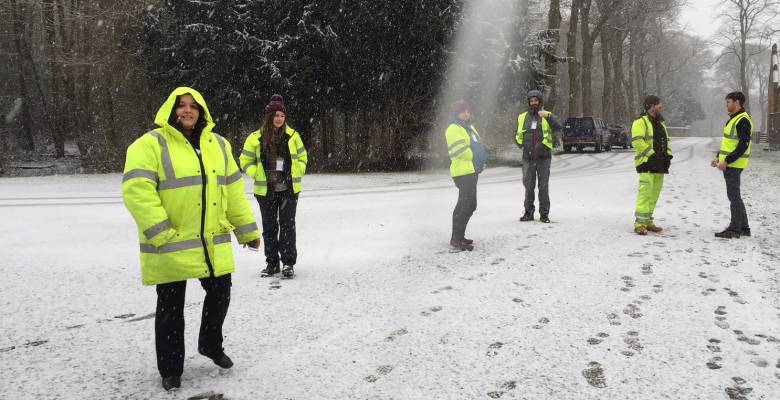For many years the role of an ecologist has been clear within the sector. As a team we are experts in identifying bats, birds, badgers, bees, plants… you name it, and we’ll do our best to identify it. We take field notes and write thorough reports or contribute to an Environmental Impact Assessment (EIA), often discussing how the proposed works can minimise the impacts, or ideally enhance the habitat. If protected or sensitive species and habitats are identified on site, licences and consents are sought from the governing bodies who are responsible for managing their protection.
So how is that followed through when on site to ensure those recommendations or requirements of licences and consents are undertaken? A as result of the developments with EIA writing practices and planning permission conditions, an Ecological Clark of Works (ECoW) is increasingly prescribed as a measure to oversee site activities and advise on compliance with environmental legislation. On larger projects, this can be a fulltime role spanning several weeks or even months on site, sometimes with a team of ECoWs each with their own speciality. On the larger of sites there can often be a ECoW responsible for auditing the team of ECoWs on site. To undertake any of the roles successfully and ensure that the ecology on and near to site is protected, an ECoW must posses a range of skills and have good site experience in site activities. So what makes a good ECoW? Here is what we think:
- Experience is the most important thing! There are no accredited courses, sites and the role are fast moving. You need experience to know how to deal with situations and big characters on site.
- Relevant qualifications are still important, and membership to professional bodies such as The Association of Environmental and Ecological Clerk of Works (AEECoW) ensures professionalism and consistency (enforced by codes of conduct and ethics)
- SKILLS:
- Decision making and negotiation
- Communication
- Good teamwork and corporation between ECoW, site teams and public bodies
- In-depth knowledge of consultation process, planning, permitting and legislation
- Authoritative
- Has protected species licences
- Good understanding of the construction process – “a construction and environmental professional can think like each other”
With such a requirement for these skills, experience and accreditations, are the best ECoWs solely an Ecologist? As the requirements for an ECoW are becoming more common and with big projects like HS2 coming into the pipeline, it is likely the needs for good ECoWs will be in demand. Here at EcoNorth we have been developing our team and have a competent team of ECoWs who have experience in a range of projects across the UK and Ireland.
For further information get in touch with ECoW specialist Krzysztof Krzysztof.Dabrowski@econorth.co.uk

